HIIT Exercises For Fat Loss: 16 Fast Full-Body Workouts
Get fit with intense sessions filled with toning exercises like burpees, pull-ups, and more.
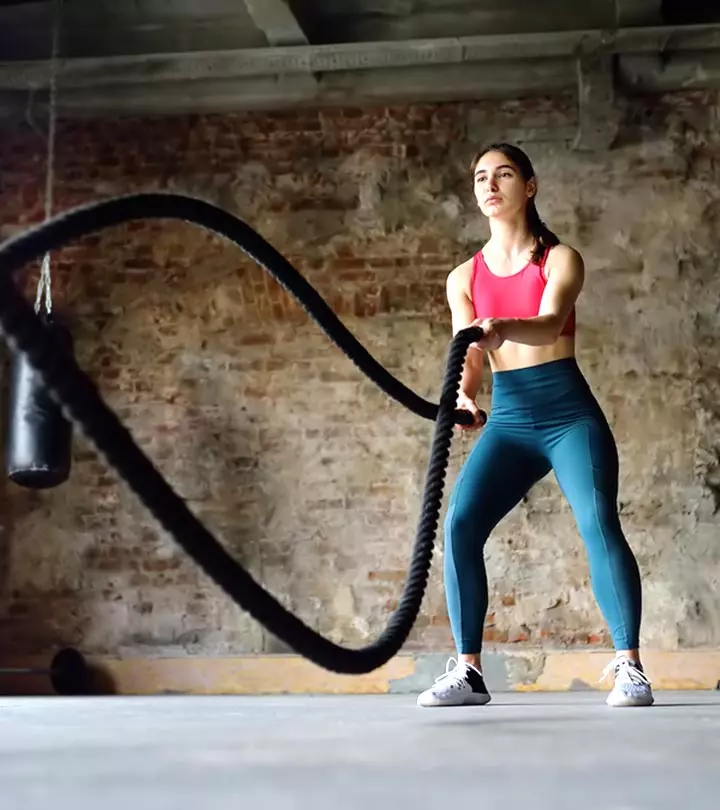
Image: Shutterstock
Have you tried HIIT for fat loss? HIIT (high-intensity interval training) burns fat effectively. HIIT has surged in popularity for its efficient fat-burning and fitness-enhancing benefits. These workouts, when compared to conventional cardio routines, last less than 30 minutes while producing noticeable effects. In this form of exercise, you do small bursts of high-intensity exercises and space them out with resting phases. HIIT is effective for weight loss, toning, and fitness (1), (2).
Did you know HIIT is not cardio? It is an anaerobic exercise. It works by depriving the muscles of oxygen during the small bursts of intense exercise. This helps the body burn fat even 1-2 days after you leave the gym! So, if you are looking for “The Workout” to lose fat, tone up, and boost fitness, then “HIIT” it!
Here are 16 HIIT exercises you can do to burn more calories in 10 minutes than 60 minutes of cardio. Scroll down!
 Quick Tip
Quick TipIn This Article
16 HIIT Exercises For Weight Loss, Toning, Fitness
Before you begin the HIIT session, you must warm up. Here’s a sample warm-up routine.
Key Takeaways
- High-intensity interval training (HIIT) is an anaerobic workout. It functions by depriving the muscles of oxygen during brief bursts of high-intensity exercise.
- HIIT has several advantages, including improving cardiovascular fitness, helping tone the body by increasing muscle mass, increasing fat burning capacity, reducing body fat, and boosting weight reduction.
- You’ll be more proactive and energized, sleep much better, and have a better mood too.
Warm-Up
- Head tilt – 1 set of 10 reps
- Neck rotations – 1 set of 10 reps
- Shoulder rotations – 1 set of 10 reps
- Arm circles – 1 set of 10 reps
- Wrist rotations – 1 set of 10 reps
- Waist rotations – 1 set of 10 reps
- Ankle rotation – 1 set of 10 reps
- Standing touch toes – 1 set of 10 reps
- Side lunge – 1 set of 10 reps
- Spot jogging – 3 minutes
- Standing side crunch – 1 set of 10 reps

Now that your muscles are prepared, start the HIIT exercises. I have designed a full-body HIIT workout for fat loss, toning, and fitness. It comprises 3 sessions of HIIT for 30 minutes. Let’s begin!
HIIT Session 1
Do 3 sets of 15 reps of each exercise mentioned in session 1. Take 10-15 seconds rest between each set.
 Did You Know?
Did You Know?1. High Knees
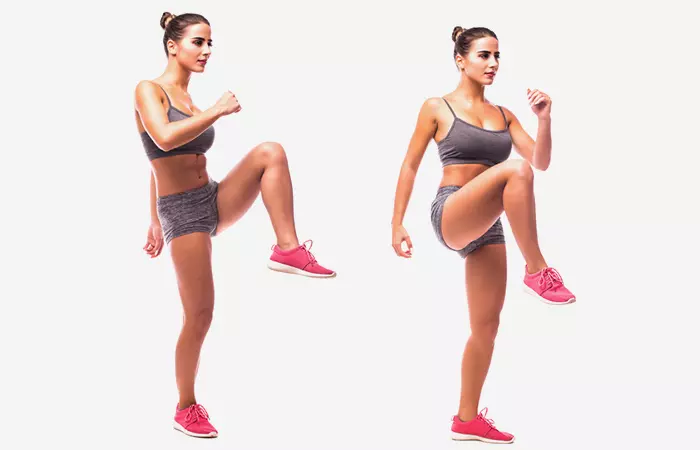
Works On: Lower abs, quads, hamstrings, hip flexors, glutes, and calves.
Steps
- Stand straight. Keep your legs shoulder-width apart and look straight ahead.
- Jump, bring your right knee up and place your right foot back on the floor.
- Jump and bring your left knee up and place your left foot back on the floor.
- Do this alternately and at high speed. This should look like you are spot jogging, except that your knees are higher. You may keep your arms extended in front of you and let your knees touch your palms when you do the exercise.
2. Burpees
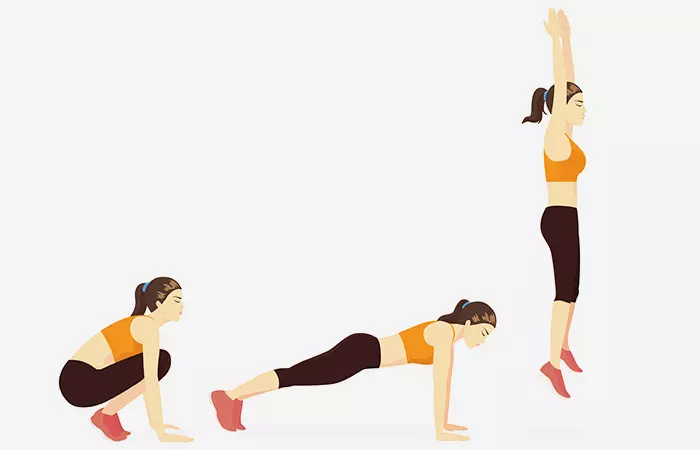
Works On: Calves, quads, hamstrings, abs, chest, shoulders, triceps, biceps, glutes, and lats.
Steps
- Assume a partial squat position. Make sure to keep your spine neutral, your weight on your heels, shoulders pinched back, buttocks pushed out, and arms in the front.
- Squat thrust and touch the floor with both your palms. Support your lower body by extending your legs behind. Keep your toes flexed on the floor.
- Do a push-up. Flex your elbows and touch the floor with your chest and then get back up to a squat thrust position.
- Do a frog jump by bringing both the legs near your palms and then doing a jump squat by raising your hands above your head and jumping up.
3. Jumping Lunges
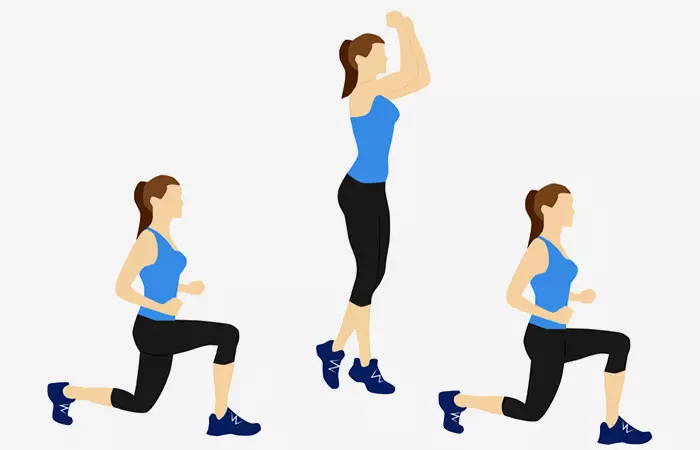
Works On: Calves, quads, hamstrings, adductorsi A muscle that draws a part of the body towards the middle section or the median line (primarily used to bring thighs together). , hip flexors, glutes, and lower abs.
Steps
- Stand straight with your legs shoulder-width apart.
- Put your left leg in front, keep your spine straight, flex your knees and go down. The femur of your right leg should be perpendicular to the floor.
- Jump, and before landing, put your right leg in front, with the left femur perpendicular to the floor.
- Jump, and before landing, put your left leg in front.
- Do this at a higher intensity.
REST – 60 Seconds
4. High-Intensity Jumping Jacks
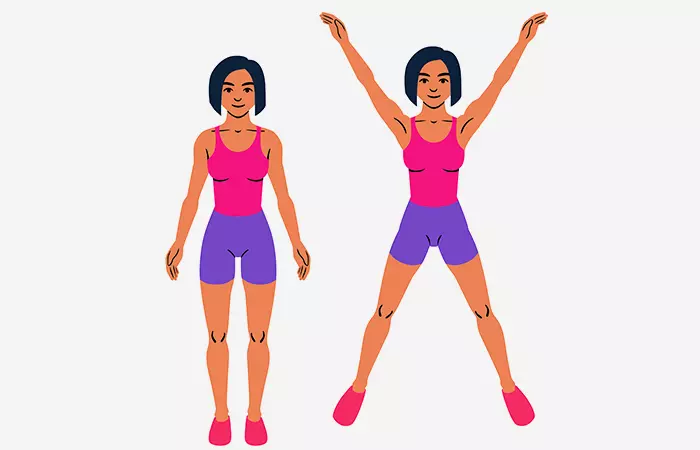
Works On: Calves, quads, hamstrings, adductors, hip flexors, glutes, shoulders, lats, and core.
Steps
- Stand straight with your feet hip-width apart and shoulders relaxed. Look straight ahead.
- Jump and move both your feet laterally apart. Simultaneously, move your hands from the sides to over your head.
- Jump again and bring your hands and feet back to the starting position.
- Jump and move both your feet laterally apart and simultaneously move your hands from the sides to the front.
- Jump again and bring your hands and feet back to the starting position.
5. Mountain Climbers
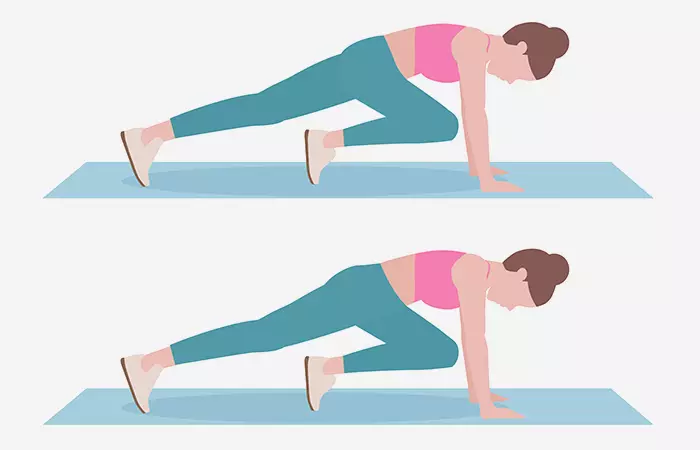
Works On: Lower abs and upper abs (rectus muscle), obliquesi Muscles running along the sides of your torso that assist in bending, rotating, and protecting your spine. , shoulders, triceps, lats, hamstrings, glutes, and quads.
Steps
- Get into the plank position. Place your hands a little wider than shoulder-width apart and keep your core engaged. Make sure your elbows are directly below your shoulders.
- Draw the right knee in, towards your chest, without lifting the hips.
- Bring the right leg back to its position and draw the left knee in towards your chest.
- Bring your left leg back to its position.
- Do this mountain climbers’ exercise at a higher speed without lifting your hips.
It is important to cool down after your HIIT workout to help your heart rate return to normal. Consider doing some slow stretches that focus on the muscles to help cool you down.
HIIT Session 2
Do 3 sets of 15 reps of each exercise in session 2. Take 20 seconds rest between each set.
6. Rope Jumping
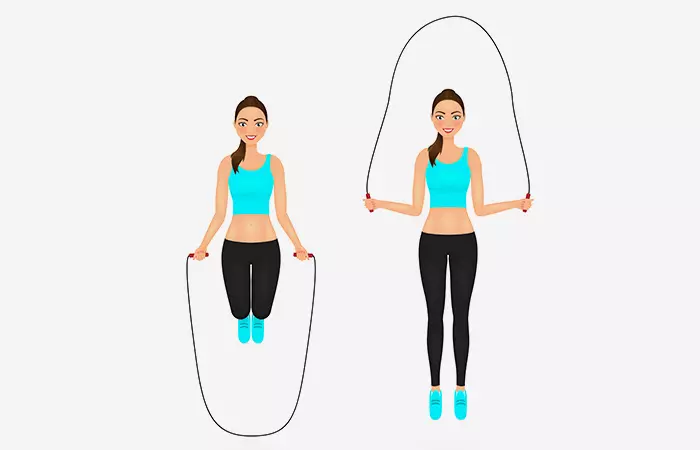
Works On: Hamstrings, glutes, quads, calves, adductor, abductori Muscles at the side of the hips that draw a part of the body away from the middle section or the midplane of the body. , wrist flexors and extensorsi Muscles that assist in the movement of our wrist or spine by increasing the angle between two halves of the same part. , biceps, and core.
Steps
- Stand straight with your feet lesser than hip-width apart. Hold the rope ends, and keep your elbows close to your torso.
- Start with normal rope jumps.
- Change these normal jumps to one-legged jumps. Alternate between your right and left legs.
- Change, jump forward and backward for a few seconds.
- Again, change, jump left and right for a few seconds.
7. Jump Squats
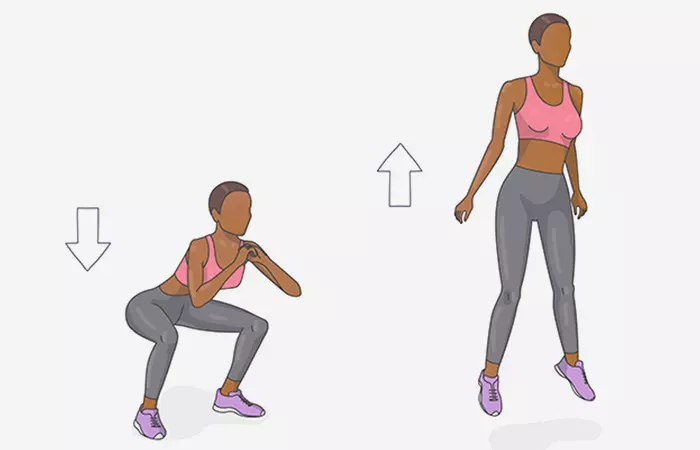
Work On: Hamstrings, glutes, quads, calves, and lower abs.
Steps
- Stand straight. Keep your spine neutral, look straight, and keep your shoulders relaxed. Your legs should be shoulder-width apart, and keep your feet 45 degrees out.
- Push your hips back, bend your knees, and draw your hands together close to your chest and come to a sitting position (squat).
- Get back up and jump as high as possible. Throw your hands to the sides to gain momentum.
- Land softly on the ground on your feet. Do not land on the ball of your feet to prevent injury.
- Get back to the squatting position again.
- Do this at a higher speed but with precision.
Rest – 10 secs
8. Russian Twist
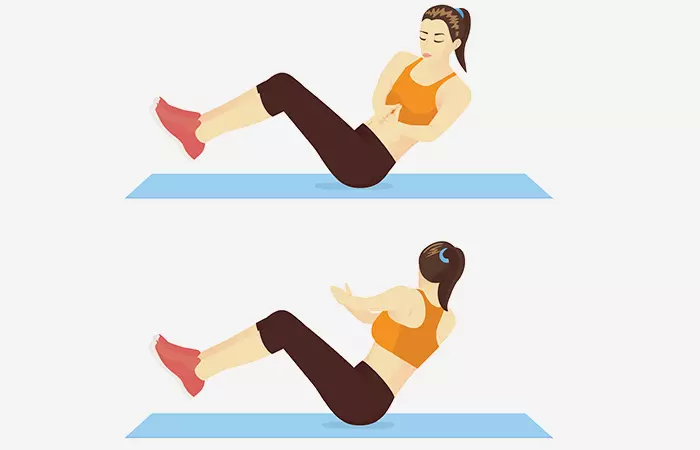
Works On: Obliques, lower abs, upper abs, hamstrings, and quads.
Steps
- Sit on the floor, legs close together, knees bent, and feet flat on the mat.
- Lean back a little and lift both feet off the floor.
- Join your palms together, core engaged. This is the starting position.
- Now, twist your upper body to the left. Move your head to the left as well.
- Twist to your right.
- Do this at a higher speed 40 reps.
Rest – 10 secs
9. Push-Ups
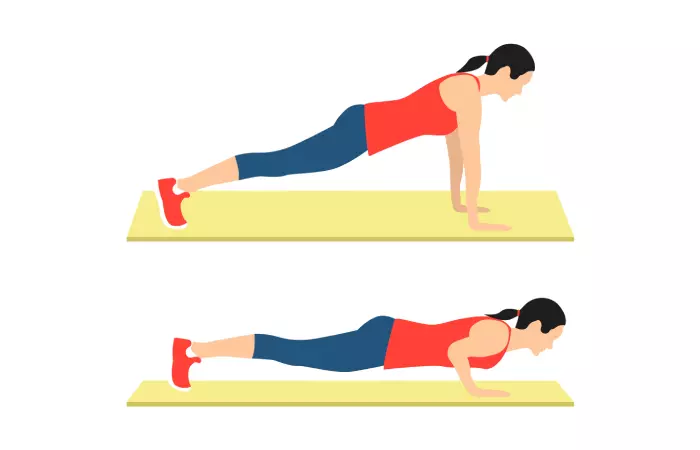
Works On: Chest, abs, core, shoulders, biceps, triceps
Steps
- Start from the plank position by keeping your feet hip-width apart, and your palms flat on the floor directly under the shoulders.
- Engage the core muscles to keep your body aligned from head to heels.
- Inhale and bend your elbows to lower your body while maintaining the straight head-to-heel alignment, until your chest touches the floor. Do not let your hips drop or lift.
- Now push from your palms and lift your entire body back to the starting position. Exhale while pushing up.
- Do 10-20 reps as per your fitness level.
Rest – 10 secs
10. Sprint
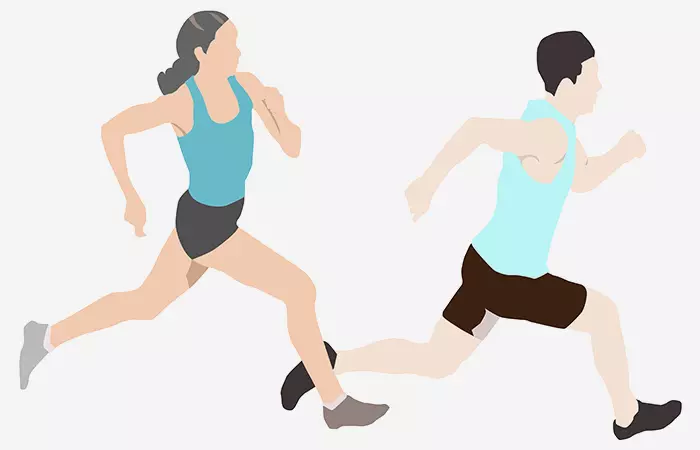
Works On: Hamstrings, quads, calves, adductors, glutes, and core.
Steps
- Start by slowly jogging on the treadmill for 10 seconds.
- Set your treadmill to a speed of 12-14 mph, and start running. Sprint for 20 seconds.
- Rest for 10 seconds, where you can walk or jog at 4-6 mph.
- Sprint again for 20 seconds and jog at 4-6 mph.
- Do this thrice.
Rest – 120 secs
HIIT Session 3
Do 3 sets of 20-25 reps for each exercise. Take 20 seconds rest between each set.
11. Flutter Kicks
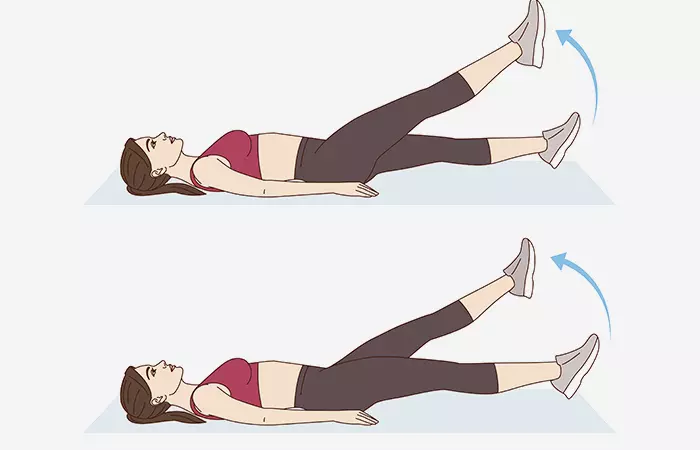
Works On: Lower abs, quads, and glutes.
Steps
- Lie down on the mat and place your hands close to your body.
- Lift your legs off the floor.
- Lower your left leg, but do not let it touch the floor.
- Bring the left leg up and simultaneously lower the right leg.
- Do this slowly to “flutter” your legs as if you were swimming.
12. Bicycle Crunches
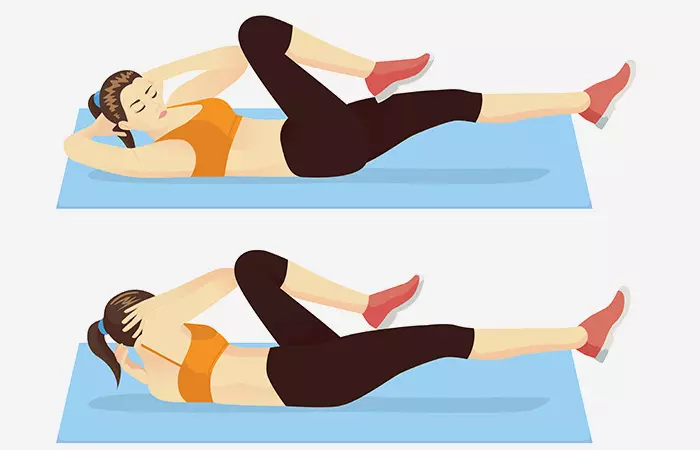
Works On: Lower abs (rectus muscle), obliques, glutes, hamstrings, and quads.
Steps
- Lie down on your back. Lift your head off the ground. Support your head by placing your thumbs behind your ears and the rest of your fingers at the back of your head. Avoid tucking your neck.
- Lift your legs off the floor and bend your knees. This is the starting position.
- Now, extend your right leg. Do not drop your foot on the floor.
- Simultaneously, twist your upper body to touch the right elbow to the left knee.
- Inhale and come back to the starting position.
- Exhale, extend your left leg, and twist your upper body to touch the left elbow to the right knee.
- Inhale and come back to the starting position.
- Do this exercise at a faster pace.
13. Ab Crunches
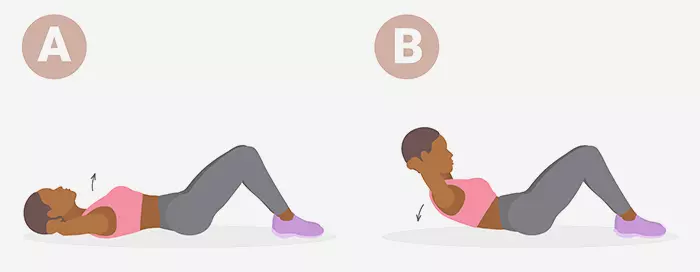
Works On: Upper abs, middle abs, and lower abs (rectus muscle).
Steps
- Lie down on the floor and bend your knees. Keep your legs close together and your feet flat on the floor.
- Push your back to the floor so that there’s no gap between your lower back and the floor. Place a rolled towel under your back if it helps. Place your hands on your head and lift your head. Do not tuck in your neck.
- Inhale and engage your core. This is the starting position.
- Start crunching by exhaling and lifting your upper body as if trying to touch your chin to your knees.
- Inhale and go back to the starting position.
- Do this slowly. However, be careful about maintaining the form.
14. Arm Curl Jack Knife
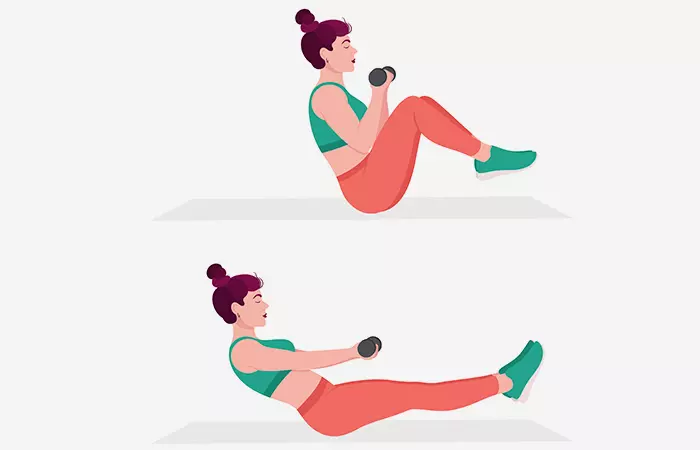
Works On: Abs, glutes, biceps, quads, and hamstrings.
Steps
- Hold a dumbbell with two hands and sit on a mat.
- Bend your knees and keep your feet together and flat on the floor.
- Lean back a little and lift your feet off the floor.
- Keep your arms curled close to your chest and hold your core tight to balance your body on your glutes. This is the starting position.
- Extend your legs back and simultaneously extend your arms. Do not drop your legs on the floor. Lean back further to balance your body. Exhale as you do so.
- Bring your legs and arms back to the starting position. Inhale.
- Do this at a faster pace.
15. Battle Rope
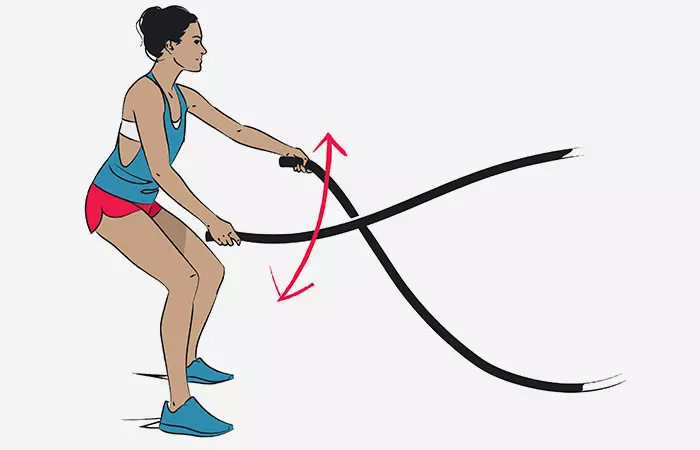
Works On: Biceps, shoulders, chest, upper back, glutes, quads, and hamstrings.
Steps
- Hold the handles of the battle rope. Position your feet shoulder-width apart. Roll your shoulders back, chest out, and look straight.
- Bend your knees to get into a half-sitting position. Keep your elbows close to your body and your forearms at 90 degrees with your upper arms.
- Pick your right arm slightly up and slam the rope on the floor as you bring your arm down. Simultaneously, lower your left arm and pick it up to slam the rope on the floor.
- Once you gain momentum, do this at a faster pace. Remember to keep your back straight and shoulders rolled back.
Rest – 20 Seconds
16. TRX Pull-Ups
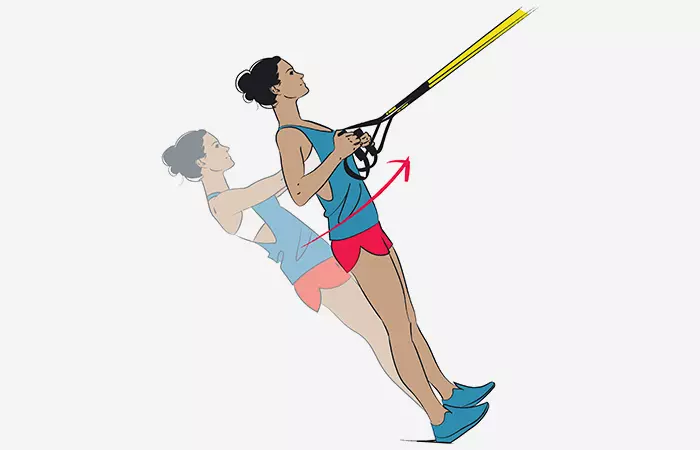
Works On: Chest, shoulders, biceps, and lats.
Steps
- Secure the TRX strands to a bar.
- Hold the handles, extend your hands, and keeping your spine, glutes, and legs in a straight line, walk forward so that you are at 30-45 degrees with the floor. Balance on your heels and keep your feet hip-width apart. Make your palms face each other, tighten your core, and squeeze your glutes. This is the starting position.
- Without bending your knees, curl your hands and bring your chest close to the handles. Exhale.
- Inhale and go back to the starting position.
These are the 15 HIIT exercises that can help you lose weight, burn more calories than cardio, become fitter, and improve muscle tone. Let’s take a look at the benefits of doing HIIT at least twice a week.
Benefits Of HIIT Workout
HIIT offers the following benefits (1), (2):
- Improves cardiovascular fitness.
- Helps tone the body by improving muscle mass.
- Increases fat burning capacity.
- Reduces body fat.
- Boosts weight loss.
- Boosts agility and flexibility.
- Improves balance and coordination.
- Enhances mood and reduces stress.
- Improves attention.
- Improves sleep quality.
- Enhances metabolic rate post-workout
A YouTuber and ACE-certified personal trainer and fitness nutrition specialist concluded her experience of trying HIIT workouts every day for a week as follows: “I have hit my lowest weight since trying to actively lose fat, so I do think that it encouraged some amount of change in my body (i).” She adds, “Overall, I’m glad I did this because it was a fun experiment, and I did kind of enjoy it, but I’d absolutely never do it again.”
Now that you know about the benefits of HIIT exercises, take a closer look at how they compare to traditional cardio methods in terms of efficiency and fat-burning potential in the next section. Keep reading!
Comparison Of HIIT And Traditional Cardio
There are some key differences between moderate-intensity continuous training (MICT) and HIIT.
- It takes less than 30 minutes to complete a good workout with HIIT, whereas MICT usually needs lengthier sessions to produce comparable benefits.
- Since HIIT can raise the metabolic rate for hours after exercise, it may help burn fat more efficiently during and after exercise. On the other hand, MICT burns calories mostly during exercise. So, HIIT may be a better option for people who want to lose as much weight as possible while saving time.
Now that you know how HIIT differs from conventional cardio, take a look at an example workout plan that may help effectively improve fat loss. Scroll down to learn more.
Sample HIIT Workout Plan For Fat Loss
Here is the sample HIIT workout plan that you can follow:
- Jump Squats – 40 sec work / 20 sec rest
- Lunges (Alternating Legs) – 40 sec work / 20 sec rest
- Push-ups – 40 sec work / 20 sec rest
- Mountain Climbers – 40 sec work / 20 sec rest
- Russian Twists – 40 sec work / 20 sec rest
- Burpees – 40 sec work / 20 sec rest
For a full workout, repeat the circuit three or four times.
Infographic: Lose Weight With These 3 Best HIIT Exercises For Women
Finding time for a quick workout can be challenging because of busy schedules. But maintaining physical and mental fitness is essential for living a healthy lifestyle. But if you’re having trouble getting started with your cardio journey or need help figuring out the ideal exercises, the infographic below will help. So try out these HIIT workouts to drop pounds quickly! Some thing wrong with infographic shortcode. please verify shortcode syntax
Frequently Asked Questions
Is 20 minutes of HIIT enough?
Yes, you should at least do 20 minutes of HIIT per day, thrice a week to see visible results.
Can HIIT cause weight gain?
If you are gaining weight with regular HIIT exercising, it is most likely due to the increased muscle mass.
What is the 80-20 rule for HIIT?
The 80-20 rule of HIIT states that you should do 80% of your weekly training at a low-moderate intensity and 20% of it at moderate-high intensity. While there are no scientific studies supporting this ruler, most athletes follow it to improve speed and endurance.
What is the perfect HIIT ratio?
The perfect HIIT ratio may range from 1:2 to 1:6, depending on the fitness level of the individual. It is recommended to refer to your trainer to get the perfect work-to-rest ratio.
Can you burn 1,000 calories with HIIT?
Yes, you can burn 1,000 calories with HIIT. However, they may vary from person to person depending on factors like weight, time, and the kind of HIIT performed.
What are the best HIIT intervals for fat loss?
While there are no relevant studies on the best HIIT intervals for fat loss, a 2018 study suggests that longer work/rest HIIT intervals are cardioprotective (3). Therefore, you can opt for one to three-minute intervals during performing HIIT. You may also refer to your trainer to get the perfect HIIT intervals for fat loss.
How long does it take to see results from HIIT?
It may take at least six to eight weeks to see results from HIIT, depending on your fitness level, the kind of HIIT you are performing, your diet, and your overall lifestyle (4).
What type of HIIT is most effective?
The type of HIIT that is more effective for you depends on your fitness needs. If you are performing HIIT for weight loss, it is recommended to opt for a full-body HIIT routine.
How much weight can you lose in a month with HIIT?
You may lose nearly 10 pounds in a month with HIIT, depending on your fitness levels and lifestyle practices like eating habits. The exact weight you can lose varies from person to person.
What are some common mistakes to avoid when doing HIIT for fat loss?
Skipping warm-up and cool-down, not taking enough rest breaks between sets, and training too frequently are some of the common mistakes you can avoid when doing HIIT for fat loss. You also need to cut down on your calories and incorporate healthy lifestyle changes like taking ample sleep in your routine.
Illustration: HIIT For Fat Loss: 16 Exercises For Women To Burn Fat

Image: Stable Diffusion/StyleCraze Design Team
An intense HIIT workout can help you burn fat and get your heart pumping in no time. Check out this video for an effective 15-minute workout that requires no equipment!
Personal Experience: Source
StyleCraze's articles are interwoven with authentic personal narratives that provide depth and resonance to our content. Below are the sources of the personal accounts referenced in this article.
i. I Tried HIIT Every Day for 1 Week // SHOCKING RESULTS! Did I Lose Weight??;
https://www.youtube.com/watch?v=FoT216lZRYI
References
Articles on StyleCraze are backed by verified information from peer-reviewed and academic research papers, reputed organizations, research institutions, and medical associations to ensure accuracy and relevance. Read our editorial policy to learn more.
- High-Intensity Intermittent Exercise and Fat Loss
https://www.ncbi.nlm.nih.gov/pmc/articles/PMC2991639/ - High Intensity Interval Training (HIIT) Improves Cardiorespiratory Fitness (CRF) in Healthy Overweight and Obese Adolescents: A Systematic Review and Meta-Analysis of Controlled Studies https://www.ncbi.nlm.nih.gov/pmc/articles/PMC7215828/
- Longer Work/Rest Intervals During High-Intensity Interval Training (HIIT) Lead to Elevated Levels of miR-222 and miR-29c
https://www.ncbi.nlm.nih.gov/pmc/articles/PMC5913345/ - Effects of eight-week high-intensity interval training on some metabolic, hormonal and cardiovascular indices in women with PCOS: a randomized controlled trail
https://pmc.ncbi.nlm.nih.gov/articles/PMC10124995/
Read full bio of Rakesh Rathod
Read full bio of Ravi Teja Tadimalla
Read full bio of Moksha Gandhi







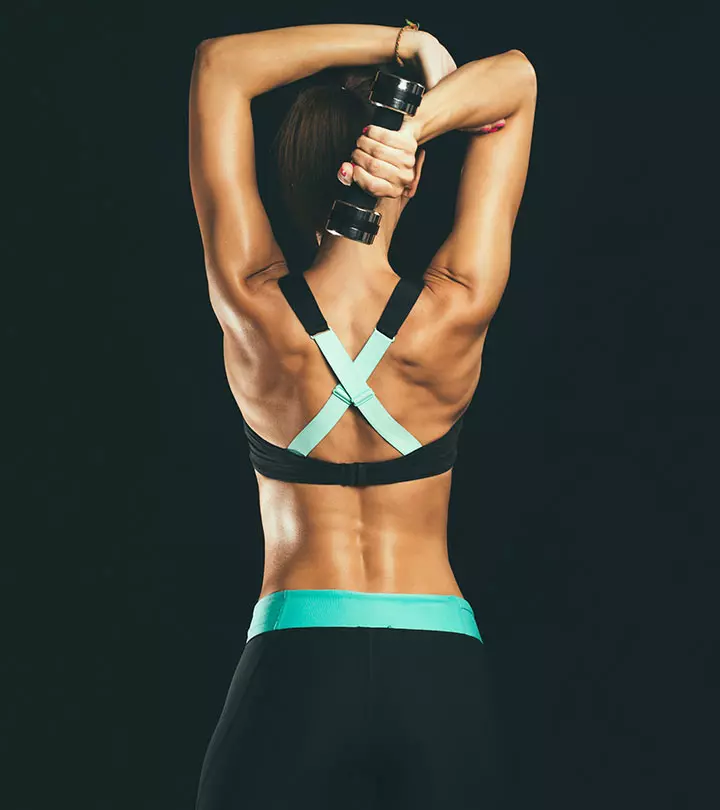

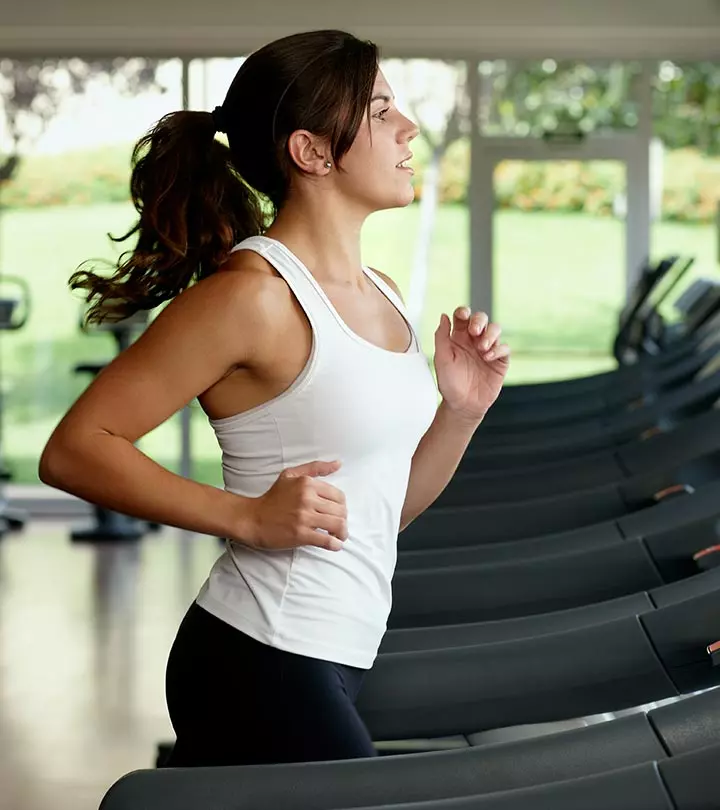
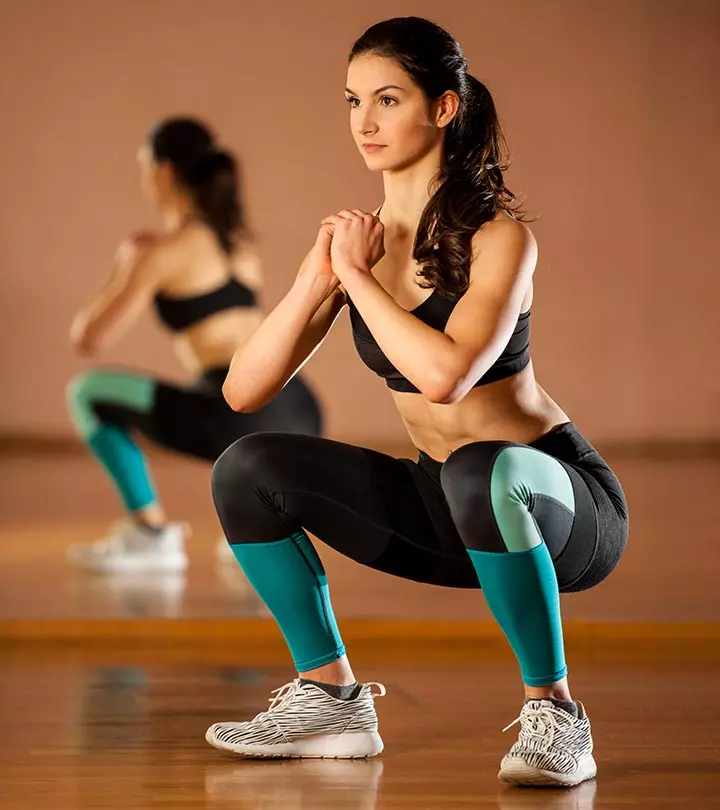
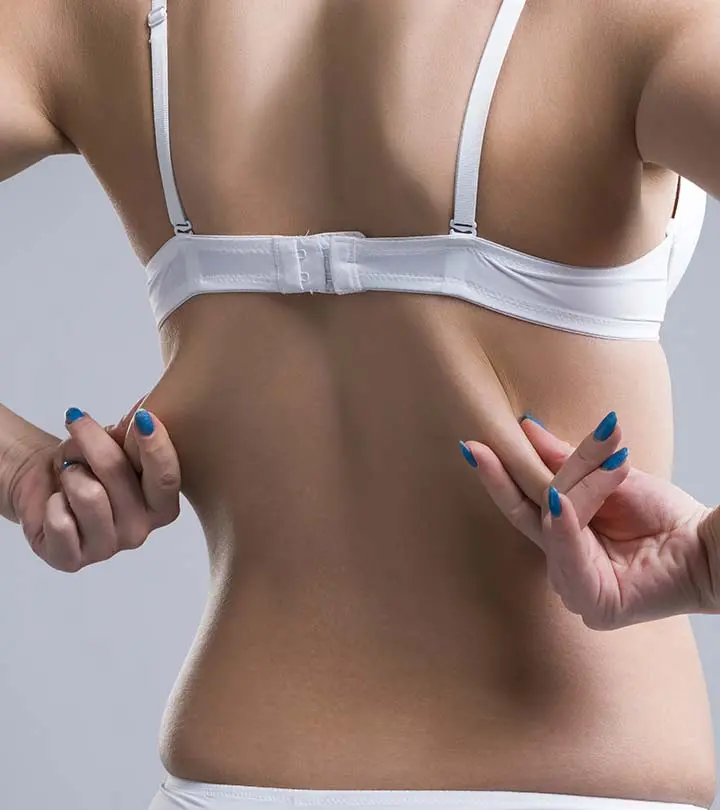
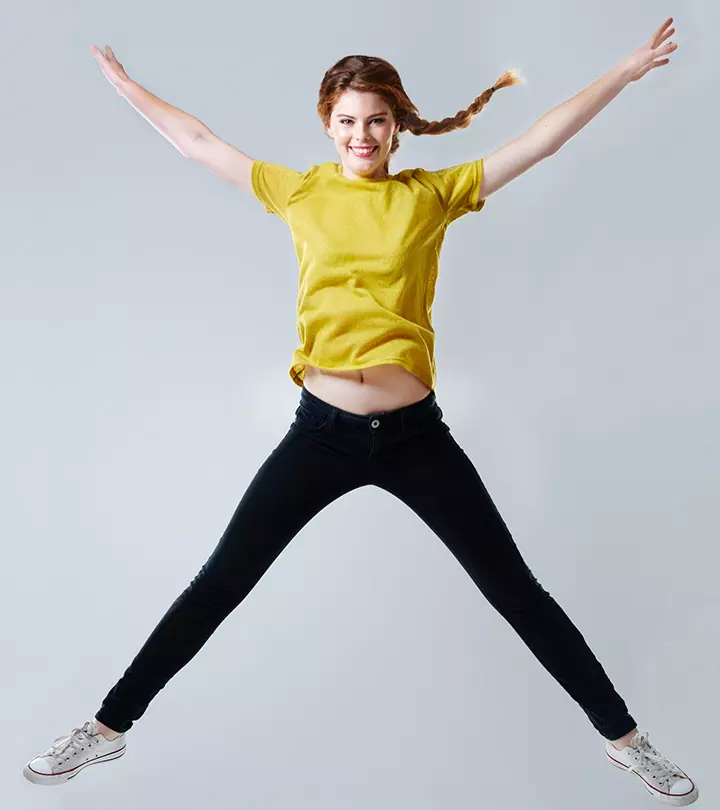
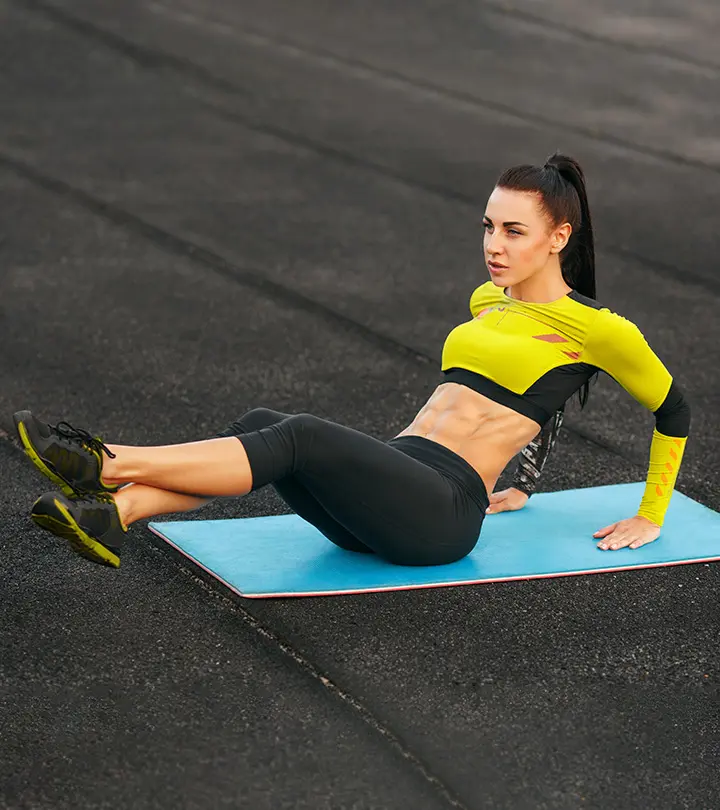
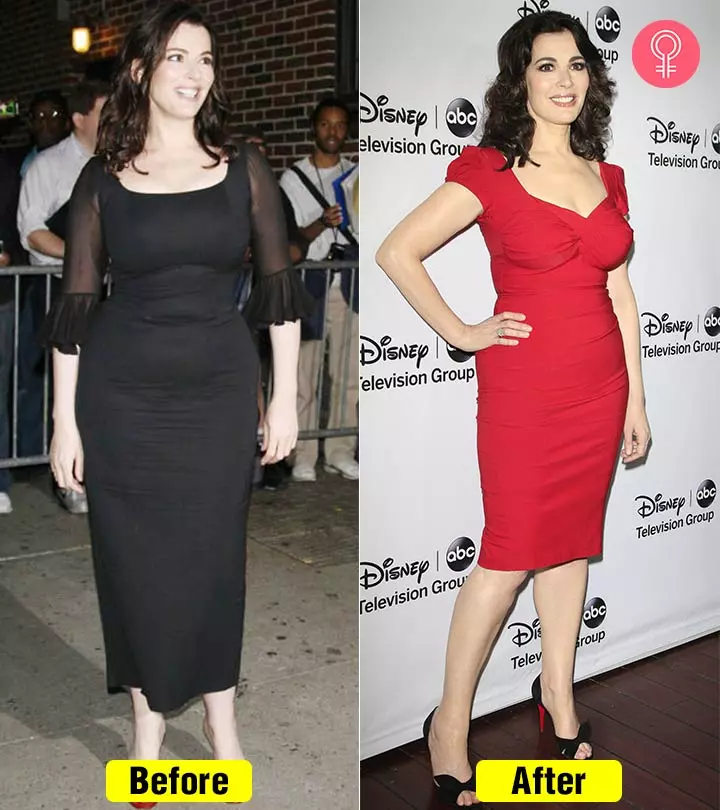
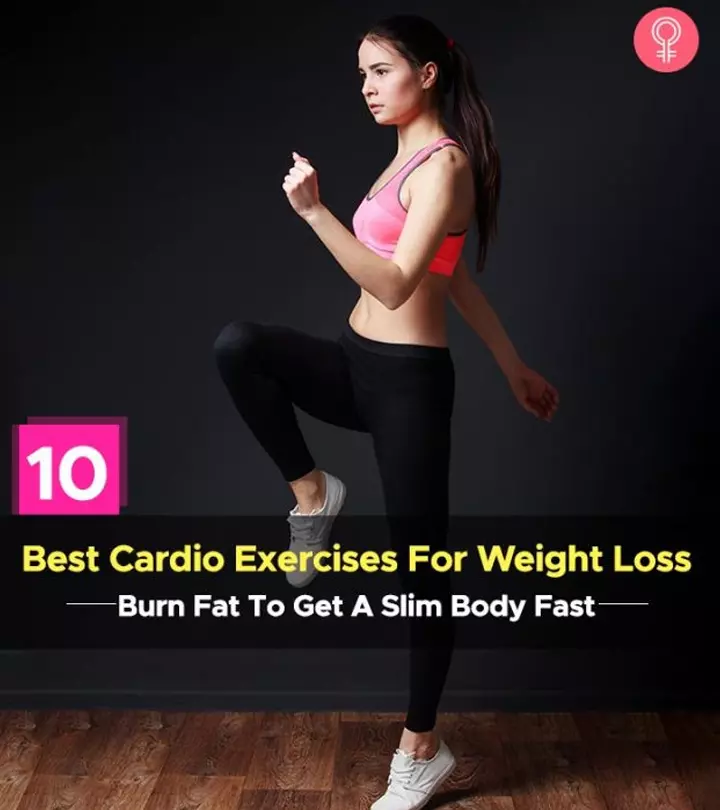

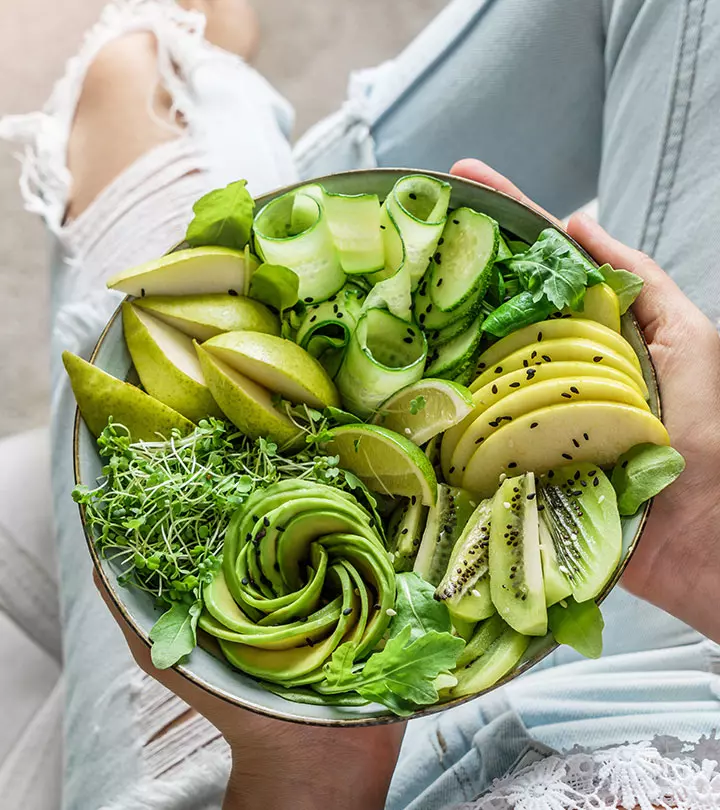
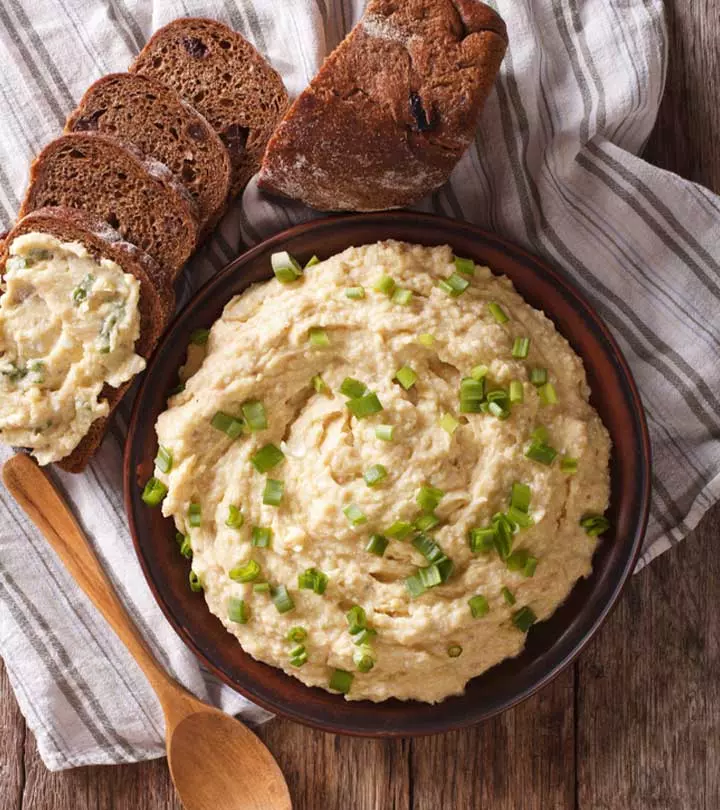





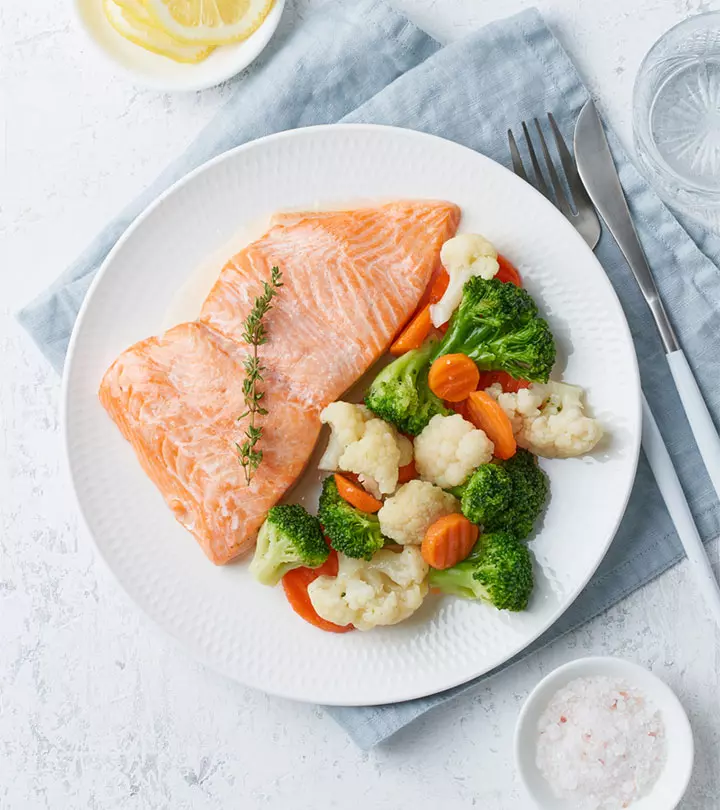
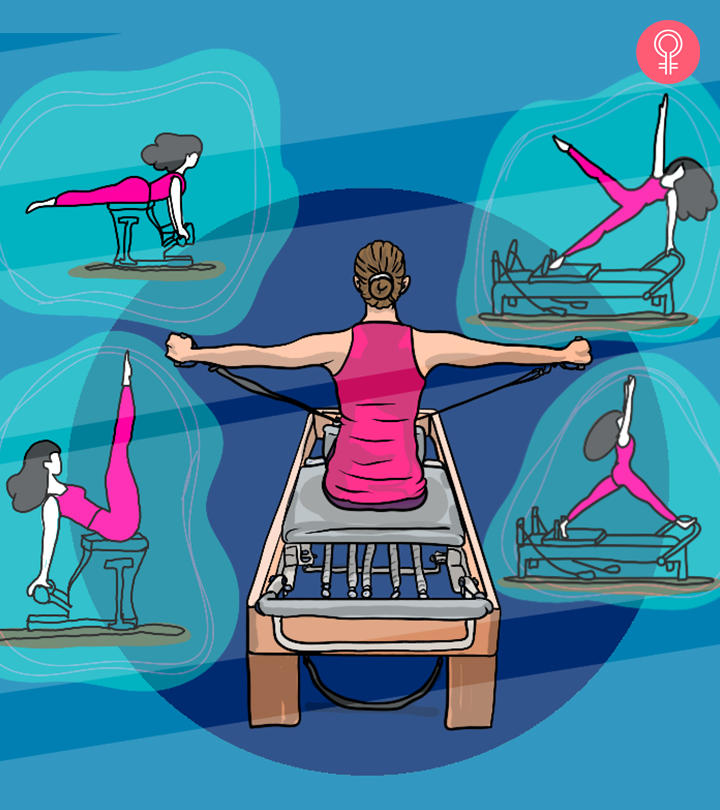
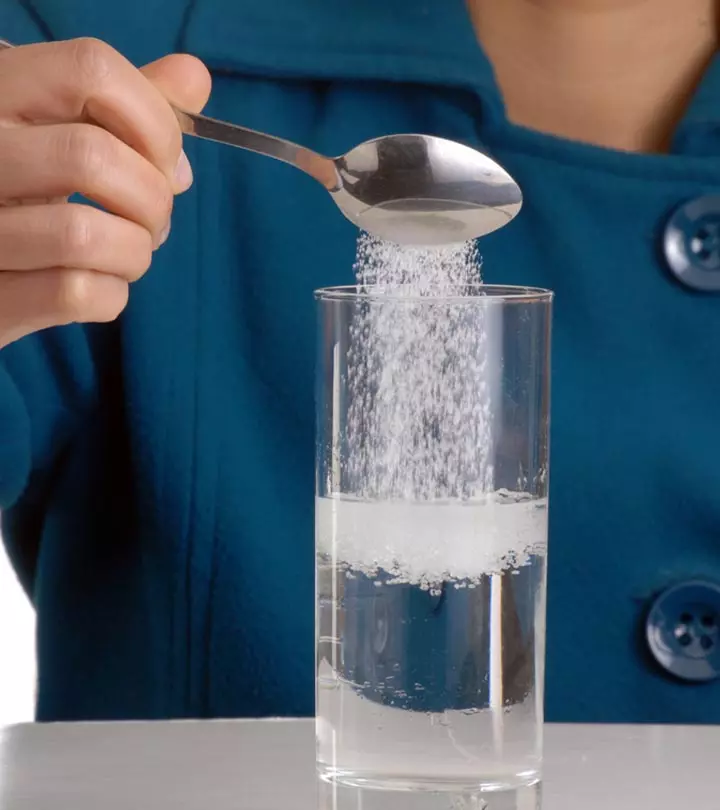

Community Experiences
Join the conversation and become a part of our empowering community! Share your stories, experiences, and insights to connect with other beauty, lifestyle, and health enthusiasts.